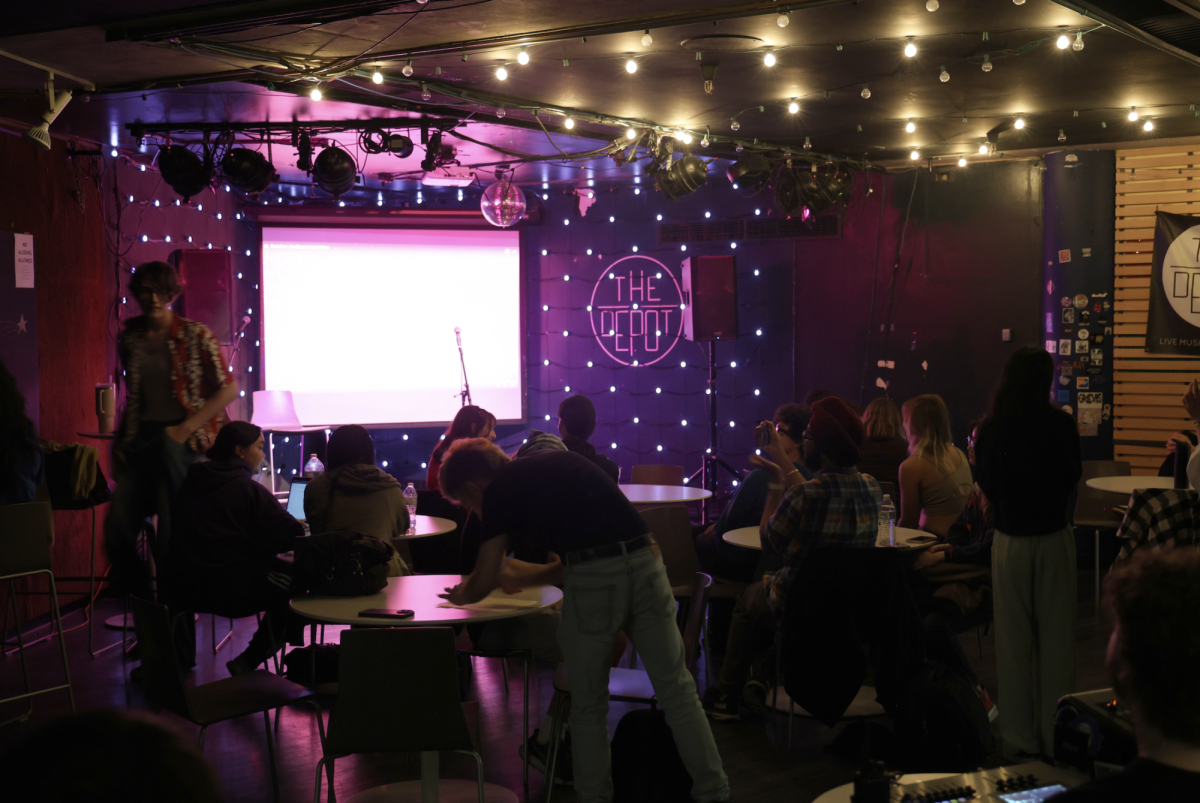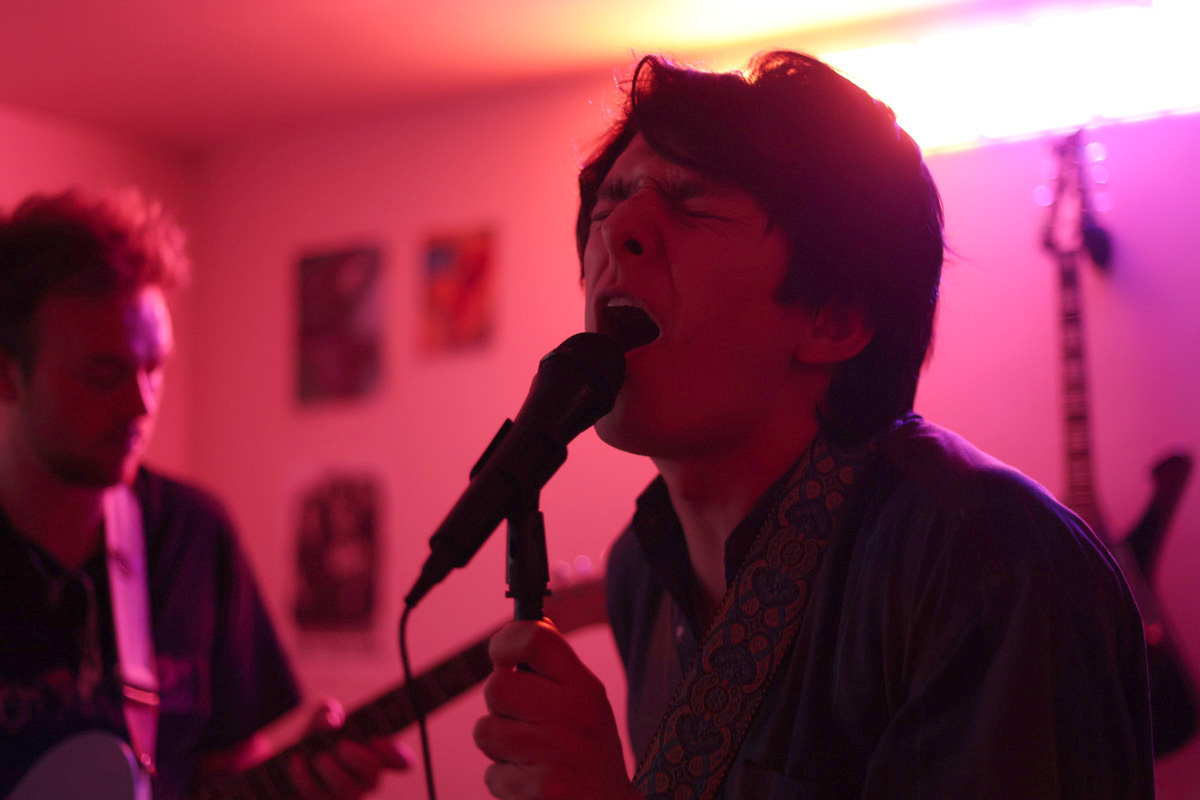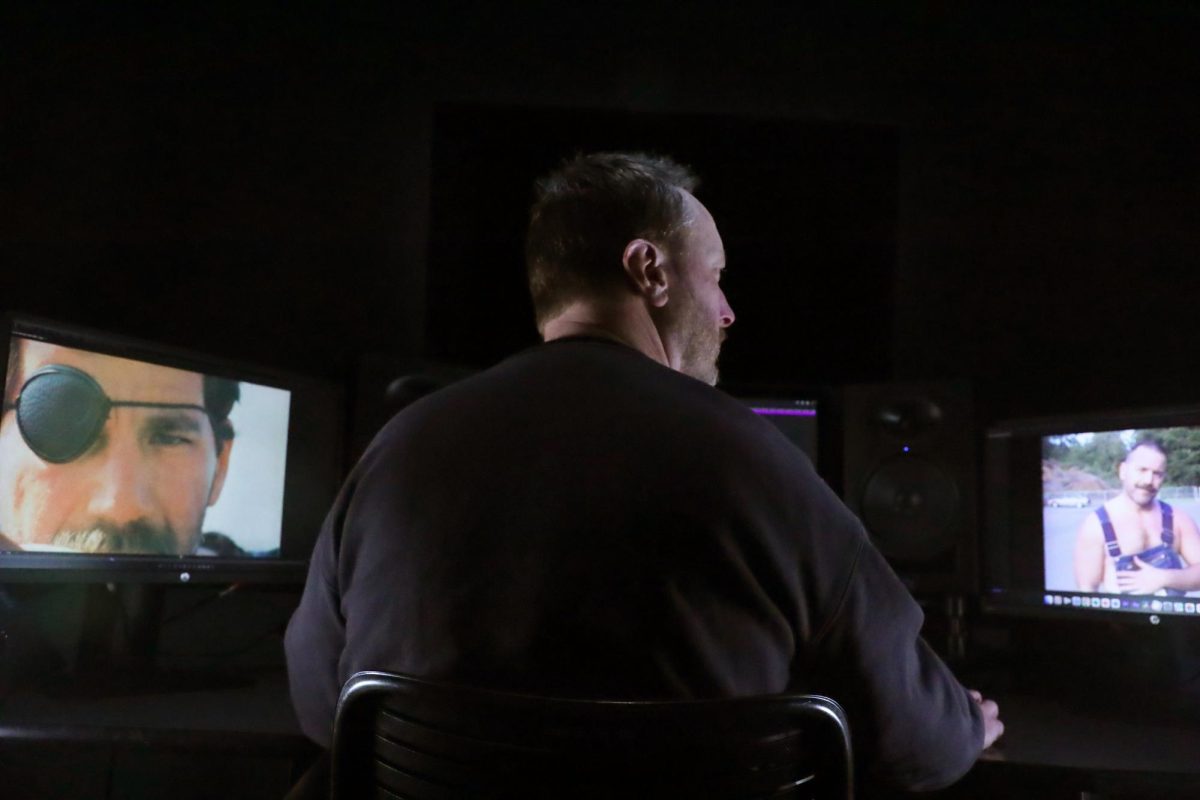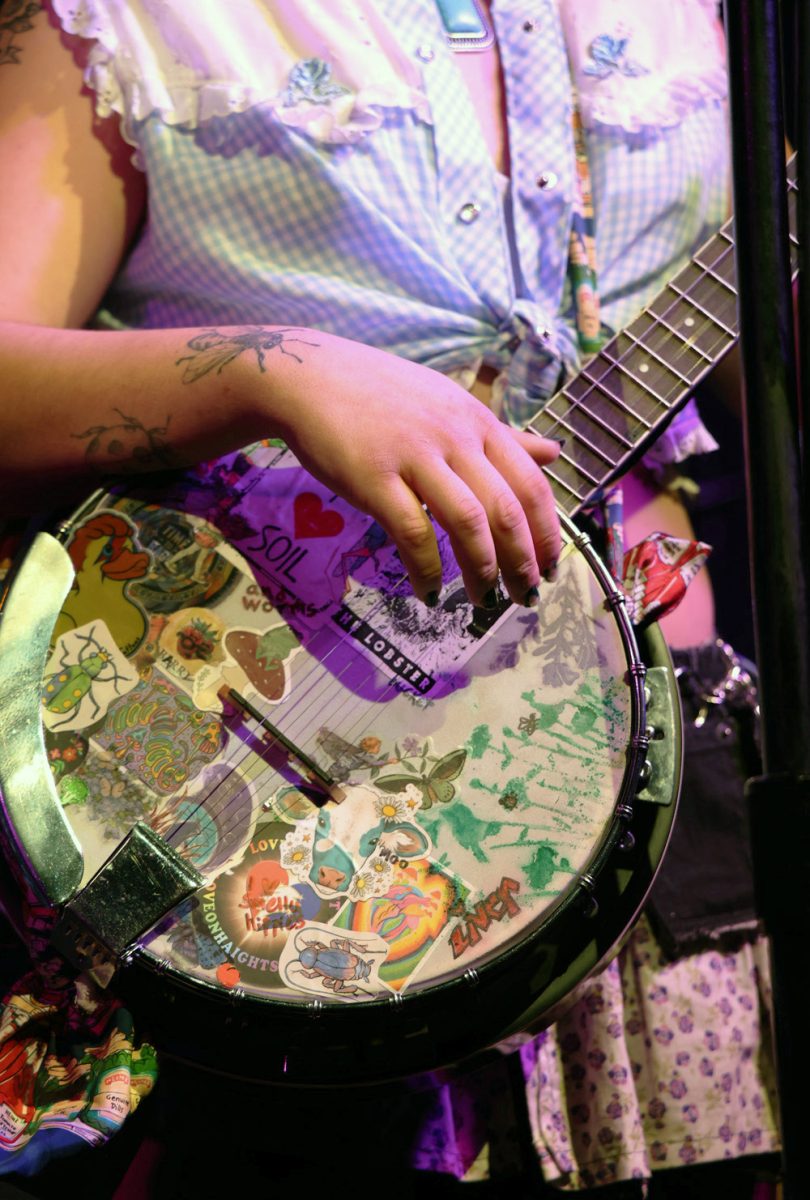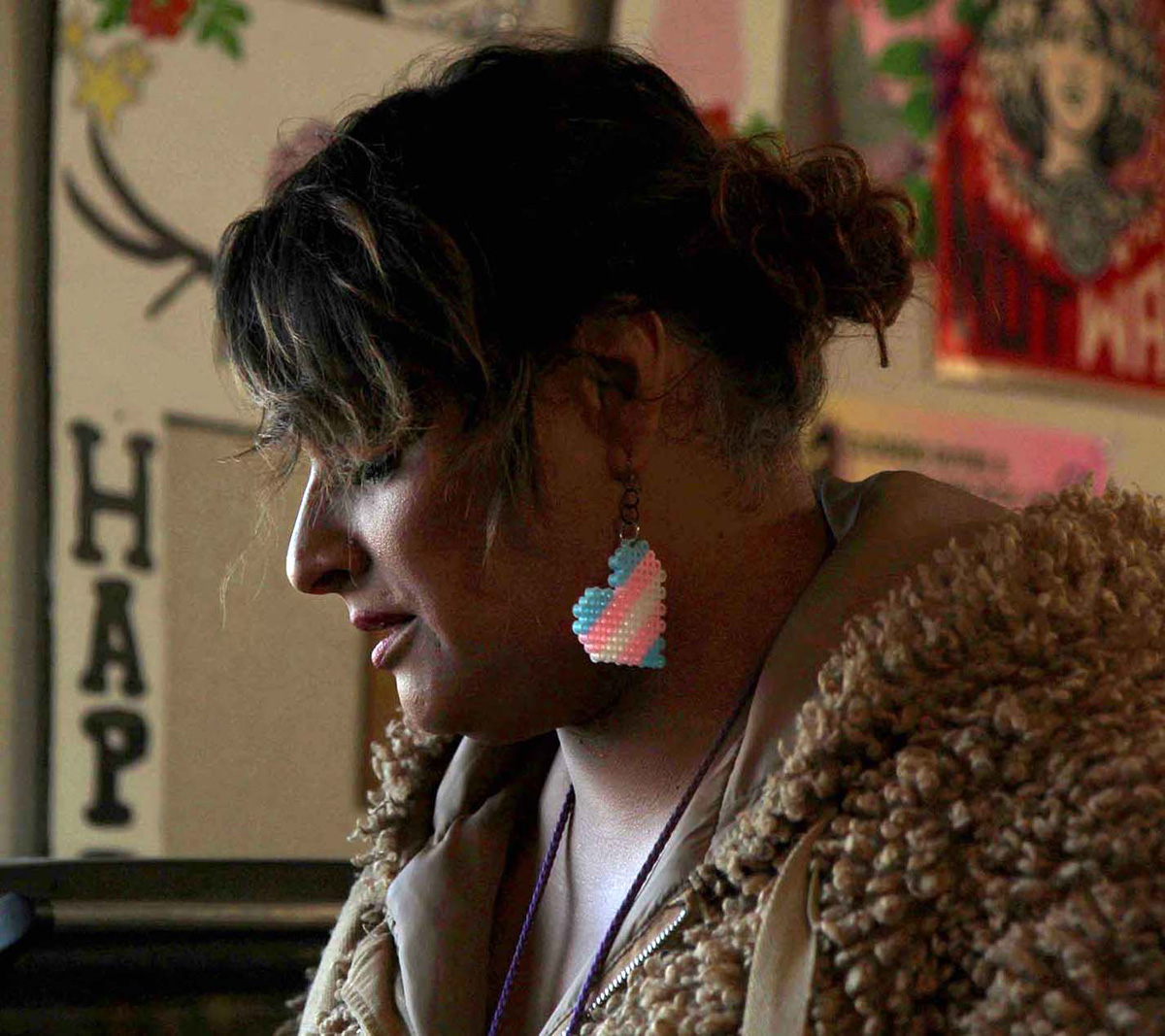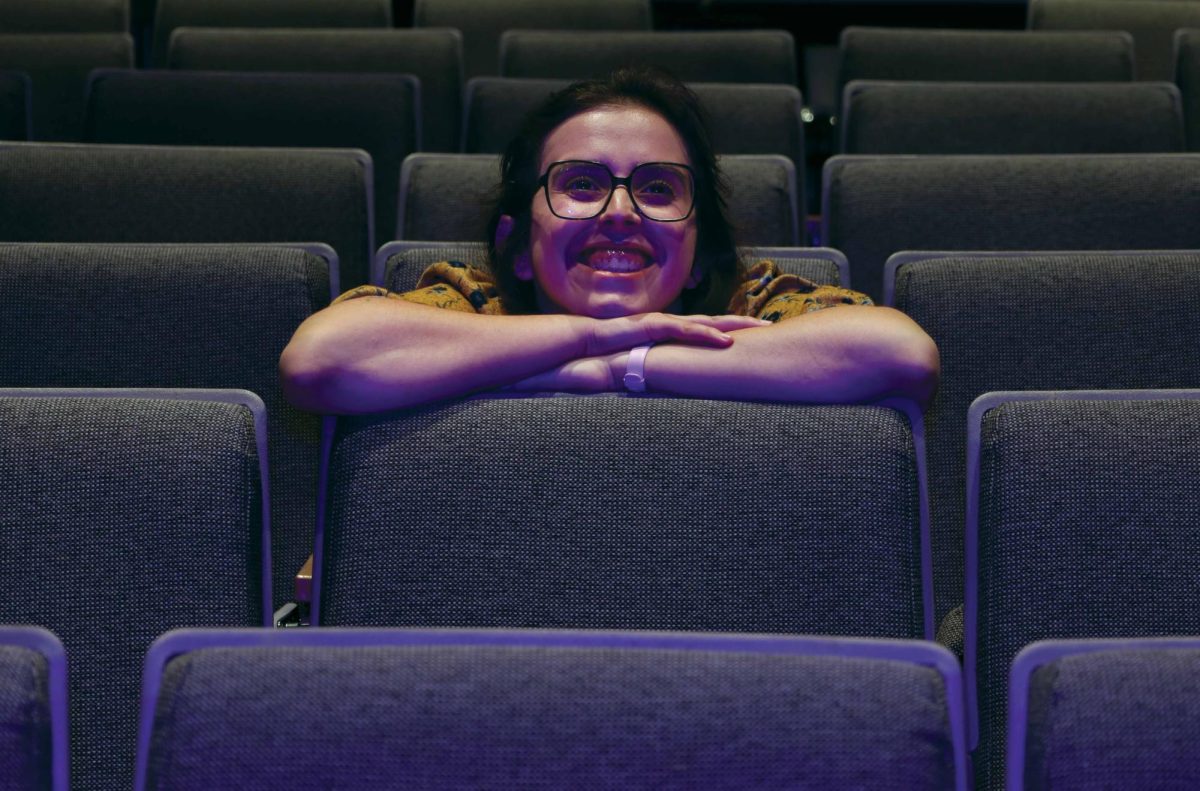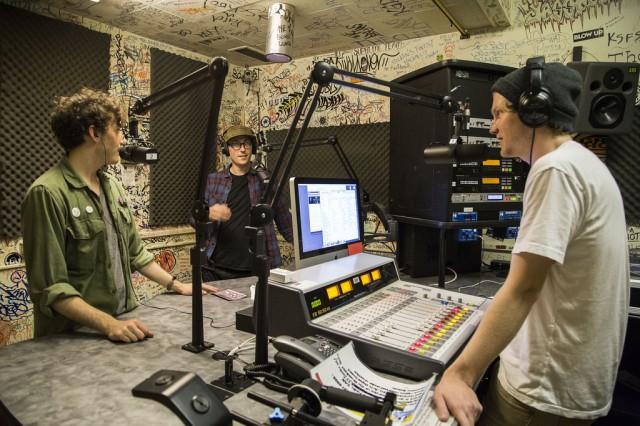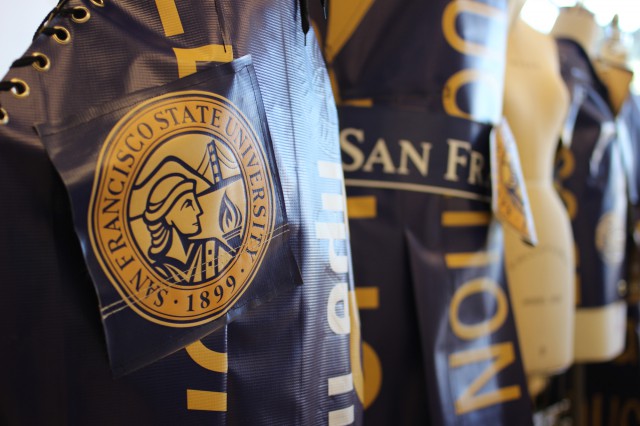
Written by Katie Mullen Photos by Lorisa Salvatin
To define hip-hop as a musical genre and culture is to make sense of an oxymoron. The true essence of hip-hop resides on the continuum between intention and interpretation. Hip-hop reflects, and always will reflect, the people that surround it.
Drastic differences between what hip-hop started out as, what it is now, and where it is headed, make it even more difficult to define. To genuinely attempt to understand hip-hop culture, it is necessary to explore all three phases.
The story goes that in 1973, DJ Kool Herc and his sister threw a back-to-school party that featured the sound of hip-hop and it exploded as a culture. The sound gained popularity so artists began to take songs with percussive breaks and isolate those portions; this became a distinct hip-hop sound.
For a while, hip-hop remained beats and beats only. Then, rappers would write rhymes over them and perform at house parties or battles.
Hip-hop rapping is a way of communicating African-American oral tradition. Therefore, this form of expression was dubbed “black culture”. Hip-hop is a culture because it is more than just a musical style. It extends to breaking, emceeing, graffiti art, deejaying, beatboxing, street fashion, street language, and street knowledge. In other words, its a way of life, not just a way of making music.
In this society, calling hip-hop ‘black culture’ gets a little tricky. There are many that agree with the statement whole-heartedly and there are also many that disagree with it.
DJ and hip-hop activist, Davey D. says, “using the word ‘culture’ is a slippery slope. How expressions are used in hip-hop makes it black culture. But in this day and age, what is culture? People come in and out of culture all the time.”
Hip-hop had a political and social force propelling it forward; it was not something that was whimsically created that could feature any subject. It was an open forum that was thought- provoking and meaningful for those listening.
Adissa, the so-called bishop of hip-hop, wrote an article for daveyd.com that says, “For anyone to even try to insinuate that hip-hop is not of a complete and unique African or African-American tradition is an insult to everyone who truly loves the art.” He goes on to clarify that all races enjoy the music today but that in the beginning, it was exclusively the black community.
SF State student Sheni Olora, better known as Shako Shake, feels differently about labeling hip-hop as black culture. “Even though hip-hop was created by black people, I don’t feel it’s just black culture. So many artists and producers of other races have contributed to the progression of the genre through different styles of flow,” says Olora.
He continues to explain, “Hip-hop is a global culture and has spread so far from its origination in America. The hip-hop culture has evolved too largely across the world for it to be bounded by one race.”

So what is hip-hop today, and what will hip-hop be in the future? The most crucial thing to think about is interpretation. An artist’s intention is completely separate from how an audience takes it in and what emotions are evoked within them. With a corporate centered society at hand, hip-hop has gone through a multitude of changes. It is much more restricted than it use to be. In the beginning stages of hip-hop, at its grass-root origins, the music was a shared commodity.
If you heard a beat you liked, you would write lyrics to go with it and you would perform it. In the same sense, if you liked a phrase from a rap, you were free to use it in your work with a different beat. This is what Davey D. refers to as open source. Today, this does not happen because of copyright laws and music labels trying to own and monopolize pieces of work.
Corporations have changed the original intentions of hip-hop not meaning to be owned. It is not supposed to be limited and it is not supposed to be defined. Hip-hop is universal, the coming together of the human race, no matter their racial background.
The open source way of creating hip-hop music is black culture. It is the black community that believed in the culture and lifestyle of the music banning together and being resourceful in order to create something new and worthwhile.
As hip-hop progresses, there will always be battles between creating something real and creating something that will sell. Do artists remain true to themselves or do they brand themselves to gain popularity?
The future of hip-hop is promising. The sound is changing while still remaining true to its roots. Traditional hip-hop has an easy to follow beat that governs the genre. The beat consists of a few notes repeated; creating a rhythm that becomes almost hypnotic. But in recent years, specifically the past five years, it has evolved.
Artists such as Jay Z and Kanye West have been two very key players in changing the hip-hop game. They have both explored and tinkered with the music, attempting to nail down exactly how far they can push the envelope and still have their work accepted by the hip-hop community. Kanye is known for his beats which are catchy and draw in the audience. While on the other hand, Jay Z is more of a lyrical master.
“Today, even in sampled old-school hip hop music, the use of the heavy 808 drum sound, snappy snares, and fast stop-action percussion has dramatically changed the sound of hip hop,” says Olora. “I feel in the earlier 2000’s producers like Timbaland used more natural sounds such as real pianos, live-recorded drums, sampled MPC drums, beatboxing, and analog synthesizers. With today’s hip hop producers having the capability of fully computer-based music production, I personally feel today’s music has more emphasis on its processing; the amount of technical effects used to enhance its sounds.
As hip-hop progresses, you can expect more artists to continue playing with the percussion breaks in their songs, adding layers of new technology, and to also incorporate other genres. For example, hip-hop artists have begun mixing jazz and soul sounds with their breaks.
The genre is one that will never stop evolving. It reflects the people who support it, the people that believe in it. So in reality, the music and the culture are not changing, the human race is changing and the music is victim to our unpredictability.
Hip-hop culture is not developing in a vacuum; the concept of the genre is not linear and explainable. It is an uncharted territory and a genre that is itching to be expanded and explored.
*Headline is a lyric from the rapper Nas’ song “Nas is Like.”


